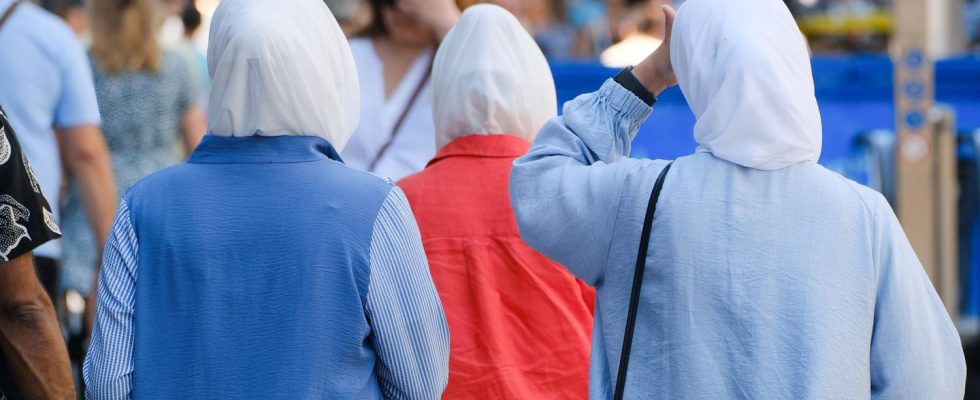After protests in autumn
Headscarf obligation: Iran brings moral guards back to the streets
From now on, the moral police in Iran are to punish violations of the headscarf requirement again
© IMAGO / Michael Gstettenbauer
Iran’s metropolises have changed since the massive protests last fall. Many women are now resisting the obligation to wear a headscarf. The state is now reactivating the notorious guardians of morals.
Iran: Public clothing checks following autumn protests
After the demonstrations against the political and religious leadership last autumn, the notorious units disappeared from the streets of the big cities. In the meantime, the judiciary even indicated the dissolution of the morality police. The protests were triggered by the death of Iranian Kurdish woman Jina Mahsa Amini in September 2022. The young woman died in police custody after being arrested for violating dress codes.
The security apparatus then brutally suppressed the protests that ensued and executed seven demonstrators. Thousands were arrested. The leadership also had a draft law drawn up that Parliament is to vote on shortly. The law provides for new and harsh penalties for violations of the headscarf requirement – initially multiple warnings, for example by SMS. Fines, professional bans and, in extreme cases, even imprisonment are threatened.
Control using surveillance technology, social networks and penalties for non-compliance
Surveillance technology should be used primarily for control purposes. Photos published online showing women without headscarves are said to have consequences. Restaurants, museums or shopping arcades must expect closure if the obligation to cover the hair is violated there.
The law has been the subject of controversy for months and has been criticized from many quarters. Influential conservatives are calling for even harsher penalties. Islamic clothing rules are a religious duty and violations of them are not an offence. Politicians from the reform camp, on the other hand, called for easing in response to the social upheavals.
women’s rights
“We look violence in the face every day” – eight women on their fight against oppression
Meanwhile, an actor has been arrested after criticizing the violent enforcement of the headscarf requirement. The actor Mohammed Sadeghi had published a video in which he criticized the violent crackdown on women who do not comply with the dress code.
Headscarves have been compulsory in Iran for more than 40 years as a result of the Islamic Revolution. Decades ago, numerous women demonstrated against it. The headscarf requirement is one of the ideological pillars of the Islamic Republic. This is one of the reasons why a relaxation or abolition is considered unlikely.

